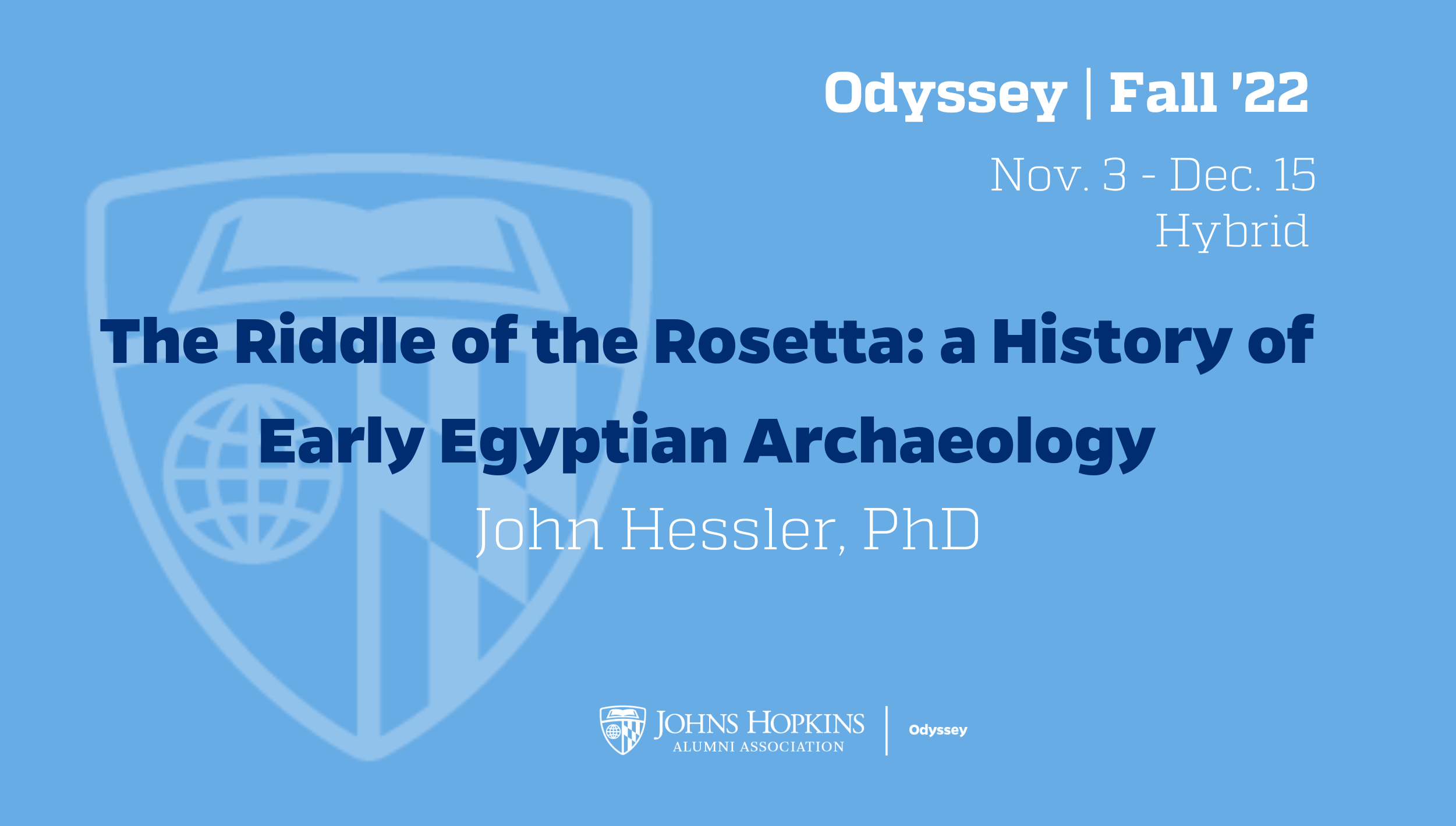The Riddle of the Rosetta: a History of Early Egyptian Archaeology

Brought to you by Odyssey
Nov. 3, 2022 - Dec. 15, 2022 (6 Sessions)
Thursday, 6:30 PM ET
Course Description:
In 1799, a French army officer under the command of Napoleon Bonaparte, stumbled across a large carved inscription while rebuilding the defenses of a ruined fort along the Nile River in Egypt. This discovery of the Rosetta stone, which was inscribed with three different scripts, led to the decipherment of Egyptian hieroglyphic writing and to the opening up of the study of ancient Egyptian culture. This course will study the earliest history of Egyptian archaeology and will follow the paths of the earliest explorers into the tombs and into the languages and inscriptions of ancient Egypt. We will study the decipherment of the hieroglyphs by Jean-Francois Champollion and Thomas Young, delve deeply into its history, and what these inscriptions, once read, revealed about the ruins, temples, and papyri discovered in the sands of Nile Valley.
This course includes a visit to Library of Congress Rare Book Division to examine rare books related to ancient Egyptian archaeology.
Johns Hopkins Tuition Remission Policies
Current and retired full-time Johns Hopkins faculty and staff, as well as their spouses or domestic partners, are eligible for tuition remission. Eligibility details can be found here.
After registration, tuition remission eligibility will be confirmed by the Odyssey registrar. If eligibility cannot be confirmed, you will be required to pay full tuition for the course. Under the terms of the University’s remission program, Hopkins employees must withdraw in writing at least five working days before the first class to receive a 100% refund. No partial refunds are given to JHU employees and affiliates. All other participants should review the JHAA Event Cancellation and Refund Policy
